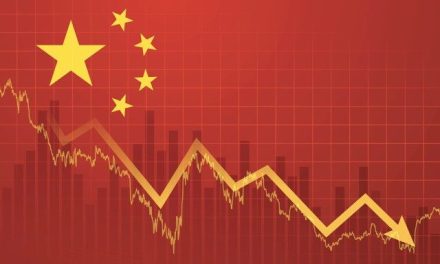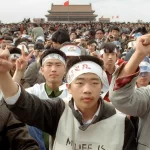– – Tuesday, April 6, 2021
There have been some developments in the past that may have led to negative sentiments against China. The failure to contain the COVID-19 outbreak, and human rights violations in Xinjiang, Hong Kong and Tibet are some of the issues that have become matters of concern. Now there is one more.
China is now contemplating annexing Taiwan using military means. This would mean the world is going to see armed conflict that may translate into a big war involving major countries owing to ongoing political maneuvers in the Indo-Pacific region. Not just governments but average citizens around the world are expressing concerns over Chinese action. Moreover, most countries would not be in favor of a military clash when the world is still struggling to recuperate from the heavy blows struck by coronavirus pandemic.
Recently, Chinese President Xi Jinping asked the People’s Liberation Army (PLA) to “step up preparations for war,” which indicates Beijing is planning to wage a war against Taiwan to annex it with the mainland. Chinese scholar Wu Qiang said Mr. Xi is set to make “a definitive move” to occupy Taiwan forcefully in five years’ time.
“Beijing is looking at speeding up a resolution of the Taiwan issue during Xi’s third term as president … This means that, over the next few years, the Taiwan issue will become the most important story in the Western Pacific,” he said. Mr. Qiang had to lose his job as politics professor at Tsinghua university in 2015 after he refused to write propaganda to improve Xi Jinping’s image and promote his policies.
The Taiwan issue has gained crucial importance in the recent past as many Western countries are up in arms over Chinese hegemony in the South China sea. More particularly, any kind of action against Taiwan would bring the U.S. into the picture, which would serve as a major flashpoint for a Sino-U.S. conflict. Phil Davidson, the admiral leading the U.S. Indo-Pacific Command, too, has warned of Chinese military action against Taiwan in the next six years. He told a panel of U.S. lawmakers that the Chinese move would be a part of Chinese “ambitions to supplant the United States” and its “leadership role in the rules-based international order.”
Taiwan is busy building its defense infrastructure, including construction of a submarine to thwart Chinese attempts to invade the island nation. China too is hellbent on accession of Taiwan either through diplomatic efforts or military force. After President Biden reaffirmed the U.S. commitment to the defense of Taiwan, China sent 30 fighter jets into Taiwanese territory.
This was a clear signal from the Xi Jinping government that U.S. support would not deter China. In case the PLA launches a military action, the U.S. would certainly support Taiwan as the Taiwan Relations Act considers a Chinese invasion a “grave concern” and urges the U.S. government to help Taipei defend itself against Beijing. It would also get U.S. allies such as Australia, France, the U.K. and Canada — which recently experienced strained relations with China — to join the fight. And there is Russia — from Chinese side. The development means the conflict may flare up into a major disaster.
There are early signs of potential conflict in the Western pacific as China continues with its plans to annex Taiwan. Recently, the U.S. warship USS John Finn and Chinese destroyer PLAN Jinan had come close to each other in the Taiwan Strait, though the reason for the development has not been made public yet.
The U.S. has been particularly vocal about Taiwan’s independence while France too has indicated implicit support to the island nation. Despite a warning from China, France has decided to send its lawmakers to Taiwan, expressing support to democratic forces. China, however, has a clear message: “We warn those ‘Taiwan independence’ elements — those who play with fire will burn themselves, and Taiwan independence means war.”
The European Union has been unhappy over human rights violations in Xinjiang where minority Uighur Muslims are said to be harassed and tortured by China. It joined the U.K., Canada and the U.S. in bringing sanctions on China. According to a poll in 2020, 60% of Britons call China a “force for bad in the world while the share was 47% in Germany and 60 percent in France.
In the U.S., too, the anti-China sentiments are on rise. According to the Pew Research Center, the percentage of people holding a “cold” feeling toward China has grown to 67% in 2021 from 46 percent in 2018. Similar sentiments echo in other major countries like Japan and India — both major players in the Indo-Pacific region.





















